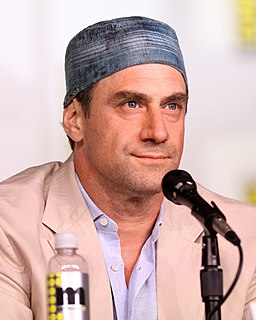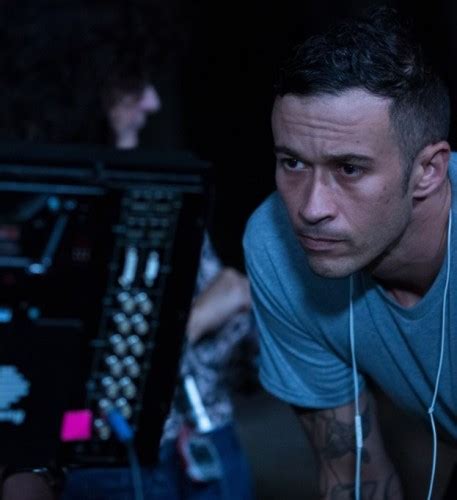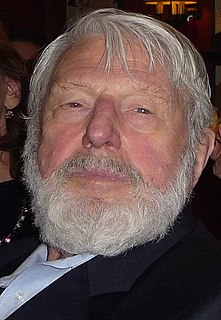A Quote by Vincent Cassel
It's always interesting to see a director trying different things, and on top of it, doing it right each and almost every time.
Related Quotes
I've always noticed talking about lyrics is like talking about a duality. It's like a Gemini time every time I talk about one line. Because each line, of course, means different things to different people, millions of interpretations. With me, I always see two sides. I just see things split into two.
Part of why I wanted to produce was because I wanted the opportunity to work on projects I want to see. As a writer and as a director, I'm very specific about the kinds of things that I want to do. The opportunity that producing has given me is that by working with different writers and trying to get their movies made, or developing their script, or making their movies, every time I'm doing it, I'm learning and then bringing something to my own work. I like to think that there's a little bit of back and forth that goes on.
Things appear different from every different plane from which you look at them, and when a person standing on flat earth asks a person standing on top of a mountain, "Do you also believe something?" the person cannot tell much. The questioner must come to the top of the mountain and see. There can be no link of conversation between them until that time.
John Huston was the kind of director that totally left you alone. Not every actor always does it right, every time, but most of the time he was re-directing someone. He was making tight adjustments, and not even in terms of interpretation because he knew that by the time that the character had been filmed... well, he got it right when he cast you.
The story man must see clearly in his own mind how every piece of business will be put over. He should feel every expression, every reaction. He get far enough from his story to take a second look at it... to see whether there is any dead phase... to see whether the personalities are going to be interesting and appealing to the audience. He should also try to see that the things that his characters are doing are of an interesting nature.
If it turns out that we're doing proper science from time to time, it just happens to be that that's the most efficient way of doing it. We go into each of these stories with an open mind, and one of the great things about how the show works is that we're not approaching it from a doctoral point of view, we're just trying to see what happens.
hen Baillie [Walsh, writer and director] wrote the movie for me I wasn't doing what I'm doing today, so when we actually came to make the movie it seemed silly to change it. But who knows? That's the way things go. What was interesting for me - and what was always interesting in the script - was that you've got someone who appears to have everything, or at least has the opportunity to have everything, and he's f**ked it up, or lost it.
What democratic socialism is about is saying that it is immoral and wrong that the top one-tenth of 1 percent in this country own almost 90 percent - almost - own almost as much wealth as the bottom 90 percent. That it is wrong, today, in a rigged economy, that 57 percent of all new income is going to the top 1 percent. That when you look around the world, you see every other major country providing health care to all people as a right, except the United States.
I am a director and I think actually they're not that different - dramas and docs aren't that different. When I'm doing a drama I'm trying to make things feel as believable and real as possible. The hair, the make-up, the costume, the design, you're trying to make it authentic. And when you've got a documentary it's all authentic, so what story are you going to tell and how do you make it dramatic and exciting? It's the same thing.



































